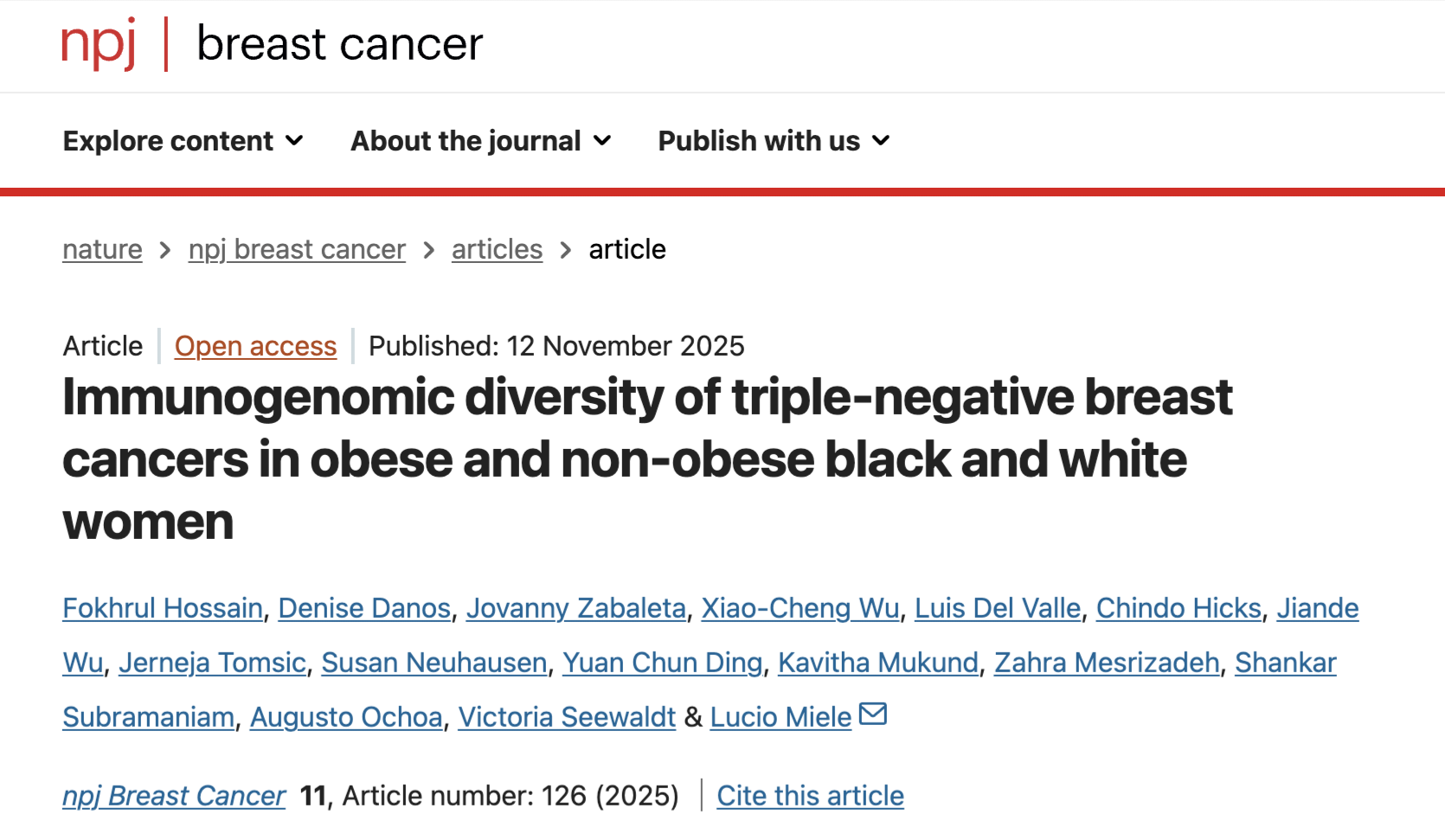.png)
Louisiana Tobacco Control Initiative: Focused on Prevention
Cancer is the number two killer in Louisiana with over 26,000 diagnoses every year. Lung cancer claims the lives of more men in our state than any other form of cancer. It is well established that smoking significantly raises one’s risk of developing cancer.

Michael Celestin, Ph.D., is a faculty member of the Louisiana Cancer Research Center and LSU Health New Orleans School of Public Health and Director of the Louisiana Tobacco Control Initiative(TCI), an LCRC program. LCRC interviewed Dr. Celestin about tobacco usage in Louisiana and a recent United States Surgeon General’s Report.
Dr. Celestin, can you please explain the connection between tobacco and cancer?
Tobacco use has been the number one risk factor for cancer incidence and death for decades. Primarily, it's responsible for over 80% of lung cancer deaths, but it is linked to over 10 different types of cancer. One out of every three cancer deaths in the U.S. is caused by cigarette smoking. We can make a significant impact on cancer if we can reduce tobacco use. It's one of the most important preventative measures we can take to eliminate cancer.
Louisiana is highly ranked for many types of cancer when it comes to comparing Louisiana to the national averages. In particular, lung cancer, prostate cancer, and other types of cancer. The statistics are staggering, but it’s important to remember that behind those statistics are real people with real stories of pain and triumph.
As far as social drivers of health in Louisiana, the Surgeon General has recognized that influences one's susceptibility to cancer.
When you think about who smokes, we've made a lot of progress over the years in the general population. But in specific groups, rates remain the the same or higher than they have been in the past. In terms of education, income, mental health, people living in rural areas, people identifying as LGBTQ – those are the types of things that are indicative of higher rates of tobacco use compared to the general population.
Right now, 14% of Louisiana adults smoke regular cigarettes.The national average is about 11%, but when you look at rates by education, comparing those with a college education, they smoke at about 13%. People without a high school diploma smoke at about 45%. It's almost three times the rate at the level of education. As far as income, 18% of those who earn more than $50,000 smoke. 28% of those who smoke make below $50,000 and 38% of those who make below $15,000 smoke.
Race is a little bit more even in terms of equity. About 27% of Caucasians smoke cigarettes, compared to 23% of Blacks. So, there's a little equity there, but sexual orientation, LGBTQ folk smoke at about 34% compared to 11% heterosexuals. Thirty-two percent of people in rural areas smoke, versus 25% of those living in urban areas and then behavioral health - people who identify as having poor mental health, they smoke at about 40% compared to 26% of those who don't. Also, those under-insured, uninsured or publicly insured smoke more.
There are several areas of concern, such as the rise in the use of electronic cigarettes and other electronic nicotine delivery systems, particularly among young adults – we still don’t know enough about their implications for cancer incidence or death and also about the use of smokeless tobacco in rural populations.While we focus most on combustible tobacco, the tobacco industry keeps evolving its product portfolio (e.g., the use of Zyn pouches has risen to epic proportions in the past year) and the use of menthol cigarettes in particular among Black people (ethnicity/race), blue collar workers (who make up a large population of the work force in Louisiana, especially in rural areas, and those with a higher prevalence of chronic disease.
What is TCI doing to help reduce those rates?
In 2001, when the LCRC contracted the LSUHSC School of Public Health to develop a smoking cessation program, it was specific to the public hospital system because large populations of those high-risk groups sought care there - low income, less educated, rural populations and others. TCI focused its efforts on developing cessation services for those hospitals and we did it at multiple levels, at a system level where we trained clinicians to treat tobacco use using evidence-based interventions for everyone. So, everyone should have benefited from our work--monitoring their performance, conducting behavioral counselling sessions for people to quit, referring them to other resources like the Louisiana Quitline and making cessation medication available at all our partner sites. I think what this speaks to, however, is, there's still more work to be done and in all likelihood it has to be tailored for these specific populations because as much as we've done to standardize our approach and work within those systems that support those populations, we still have high rates. So, we have to figure out better strategies to specifically reach those populations and ensure that they don't start or continue to smoke.
Some strategies to drive rates down in these populations include improving economic development and educational attainment for their communities and developing tailored counter marketing to decrease the appeal of tobacco products. From a TCI perspective, we will continue to educate and make available cessation education and treatment for those populations identified in the Surgeon General’s report through partnerships with the health systems and centers in the state.
So how can people access the resources that Tobacco Control Initiative provides?
Visit our website: www.latci.org, or call us at 1.866.457.QUIT (7848). Our services are free or at a reduced cost. So, if you're a patient in one of our partner hospitals or health centers, for example, we have tobacco treatment specialists who will provide free counseling to help you quit and refer you to additional services. We will help figure out how to get you cessation medication because while we don't write scripts, we can find out who your primary careprovider is and help get that script for you so you can get it at a free or reduced cost. The website lists our tobacco treatment specialists located throughout the state. They can assist you with quitting and you can call them directly.




